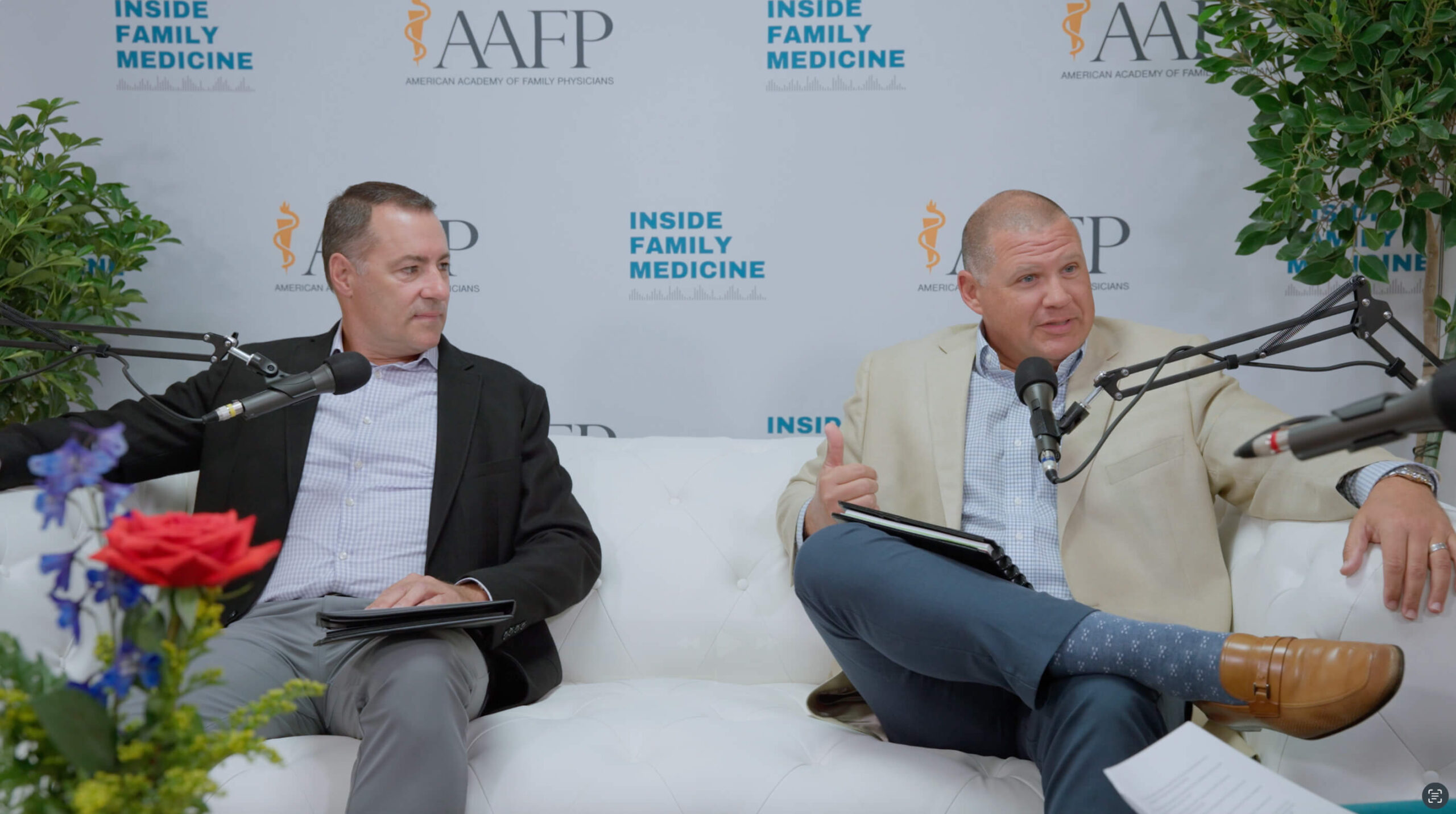 As the saying goes, forewarned is forearmed. And for the family physician looking to buy disability insurance, there are several things you need to know before speaking with an agent.
As the saying goes, forewarned is forearmed. And for the family physician looking to buy disability insurance, there are several things you need to know before speaking with an agent.
To start with, buying disability insurance is different from buying home, car, health insurance or long-term care insurance. Not only are all products not created equal, but neither are needs. And physicians have some unique requirements.
You need a policy that meets your reality.
For that reason, we’ve put together a list of critical points based on some of the more commonly asked questions we receive. Let’s begin with how the word “disability” is defined in the industry.
What Does Disability Mean for a Physician?
As a physician, you must purchase a disability policy that protects you when you can’t work in your field of specialization regardless of whether you could do some other kind of work.
The problem is that many disability insurance policies only kick in when the policyholder is flat on their back and unable to work at all. If you had standard disability insurance, your claim might go something like this:
You have a private family practice that provides 85% of your annual income, and once a week you also teach at a local medical school. Then one day, you’re in a car accident and left severely and permanently injured to the extent that you’re unable to continue in your daily practice.
Since 85% of your income is gone, you apply for disability. But you are turned down and told that because you can still teach, you should do so even though teaching was just 15% of your income, and there is no guarantee you can get a full-time teaching position.
You need a policy that defines “disability” broadly to mean: “own-occupation, specialty-specific” with no limitations. This definition applies to your occupation as a physician and your specialization as a family practitioner. And if you are unable to do that work due to a health issue, you should qualify for disability insurance.
When Should You Get Disability Insurance?
The short answer is you should buy disability insurance before you need it. The more serious answer is: as soon as you can afford it. Disability insurance is expensive—although less than malpractice.
With a little strategic planning and the help of your insurance agent, you should be able to purchase a small policy during your residency.
Why buy so early? First, because you never know when you might be severely injured and unable to work. Second, because the younger and healthier you are, the lower your premiums will be.
But should you consider a “graded” premium? The advantage is that graded premiums start small, making them more affordable to a new resident. While the premiums increase over time, you should be better able to afford them as you become more established.
Is Employer Group Disability Insurance Enough?
Again, we’ll start with the short answer: probably not. While many employers and medical associations offer group disability policies, be cautious about relying on them exclusively.
Employer Group disability is better than no disability insurance, but there are significant limitations:
- Your employer group disability policy is non-portable. Should you leave your position, and if your next employer doesn’t offer a group policy, you’re left without disability insurance. An individual or association-group policy is yours regardless of where you work.
- A employer group disability policy probably can’t replace your total post-tax income. Depending on the policy, it will be some percentage of your base. You can use a individual or association-group policy to supplement the employer policy and protect your income.
- Most employer group disability policies do not define “disability” as broadly as “own-occupation, specialty-specific.”
Even so, employer group disability can be an essential part of your overall coverage. If you have a pre-existing condition that makes it more challenging to buy an individual or association-group policy, the employer policy makes good sense. Many employer group policies have a “guaranteed issue” plan that ensures coverage without a medical exam and regardless of a pre-existing condition. You can still seek out an affordable individual or association-group policy.
How Much Disability Insurance Do I Need?
The amount of disability insurance that you require depends on how much income you need to meet your living expenses and your retirement savings until you retire. With an individual policy, however, you probably don’t need to factor in taxes as your benefits are paid with post-tax dollars.
If you also have a employer-group disability policy and are factoring it into the size of your individual or association-group policy, remember that employer-group policy benefits are often paid with pre-tax dollars. So, in that case, you will need to plan for tax payments.
No rule of thumb works for everyone. Maybe a resident requires roughly $5000 per month in benefits, whereas an attending physician needs $12,000-$18,000 per month or more.
Your decision will also depend on how much your spouse contributes to the family income. Given that premiums can be high, consider what you need.
A healthy, young resident can expect to lock in a policy with premiums ranging between two and six percent of the benefit. In this case, a resident with a $5,000 a month benefit could expect premium payments between $100 and $300 each month. And the premiums go up from there.
Which Riders Make the Most Sense?
There are several riders designed to amend your basic policy and provide additional coverage. Of course, each will increase your premium payments, so select wisely. Here are a few of the riders that physicians most often consider:
Guaranteed Future Purchase
If you buy a small policy as a resident, you’ll want the option to purchase additional coverage as your income and financial responsibilities rise. Most important is that you can buy more disability coverage on your original policy without further questions about your health or hobbies.
Residual Disability
Residual disability is the inability to perform some of your professional duties. This rider allows you to claim a partial disability and receive a benefit payment on the portion of your work that you are no longer able to do. It provides income protection should you be able to work in a limited capacity or see fewer patients per month.
Cost of Living Adjustment
The cost of living adjustment (COLA) rider indexes your benefit to inflation. It only increases your benefits once you are claiming them. Since the increases are small, if you are in your mid-50s or older, you may not need this rider.
Practice Overhead Coverage
If you own a private family practice, this rider pays the expenses associated with the business. It typically lasts for one or two years, at which time you’ll either be back at work or have sold or closed the practice.
How Long Should I Keep My Disability Policy?
Because personal disability insurance is expensive, you won’t want to keep it any longer than necessary. The whole purpose of long-term disability insurance is to provide the financial protection you and your family need should you become unable to work during the prime of your life. If you become financially independent, you’ll no longer need the insurance. Also, most payouts stop between ages 65 to 70. By this age, your retirement benefits and Social Security will have kicked in.
What Can You Expect If You Need to Use Your Disability Insurance?
Let’s explore how quickly your benefits will kick in:
- Short-term disability typically will start between one day and two weeks after the disabling event. And it will pay out for anywhere between two months and a year. Many employers offer this coverage while most physicians maintain a six month emergency fund for this purpose. Short-term is not available in the individual or association-group markets.
- Long-term disability will take longer to activate. If you also have short-term disability insurance, the long-term disability insurance will activate when the short-term policy ends. Otherwise waiting periods can be selected from 30 days to one year while it is most common to choose a 90 day.
You need to make sure you have a bridge to cover your financial needs until your disability benefits activate. If you only have long-term disability insurance, find out how long it takes to activate and make sure you have enough emergency savings to cover you until that time.
How Should I Approach the Process of Buying a Disability Policy?
So now you have enough information to start looking for a policy. Work with an independent agent like your AAFP Insurance Program who can help you choose a policy from any of the “Big Five” insurers.
Find an agent who you feel comfortable working with and will help you get the right policy with the riders you need. Ask if there are any physician discounts you might be eligible to receive. These vary widely by state and broker. Ask the agent for multiple quotes from different insurance companies. Discuss the pros and cons and what’s best for you.
You’ll probably need to provide a medical history. To obtain the most accurate quote, be honest. Be aware that pre-existing conditions are not typically covered under a personal policy, which is another reason to buy your policy early in your career.
Let the agent know if you are already covered under a group policy. It will help them to formulate the best strategy for you that combines a group and individual policy.
So here’s the bottom line: You’re probably only going to buy disability insurance once or twice in your lifetime. You want a policy that will meet your needs throughout your working years. Work with an independent agent you trust, buy disability insurance as soon as you can, and keep it only as long as it provides value. Being without this coverage can be devastating to your financial plans.
You are now forearmed!




